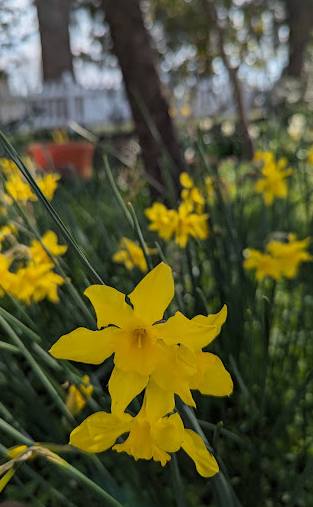A Hardy Gloxinia
- Clifford Brock
- Aug 9, 2022
- 2 min read
I love the unusual, and I'm always looking for plants that perennialize here in my humid/ hot zone 8A middle Ga garden. I also have a special liking for plants with tubular flowers that attract hummingbirds. Gloxinia nematanthodes 'Evita' is an Argentinian gesneriad. Gesneriad refers to the family, Gesneriaceae. It is a huge family with something like 3000 species. While most are tropical, including our beloved African violets (Saintpaulia), there are a few temperate species that will perennialize here in the southeast. Another hardy species that I'm just now experimenting with is Sinningia tubiflora, but I'll write about it when I have more experience.

Years ago, while I was curator at the State Botanical Garden of Ga, I planted 'Evita' in the Flower Garden. And over the years I have observed it mature into a modest clump. Today you can find it in a large container beside a bench on the walk between the Flower Garden and the Day Chapel. Its bright red-orange flowers can't help but be noticed under the dappled light of a large sycamore.
Every spring I fear that it has died, but then I remember that it emerges from winter dormancy late- sometimes as late as June. Over time it will spread via stolons, but I wouldn't classify it as aggressive.
As far as cultivating this minute gem, it is important to locate it in a container or close to a path so as to not lose it to larger more aggressive plants. And as with other members of this family, it likes well-drained soils- poor drainage will kill it! According to PDN, good winter drainage is most crucial. It seems to do best in a dappled light situation, preferring more sun than shade. Though I suspect it will also grow in full sun.
I'm beginning to propagate my personal specimen via cuttings, so I'll hopefully have a few to sell either this fall or next spring, but in the meantime, you can purchase it from Plant Delights Nursery. I'd suggest planting these early in the summer so as to ensure adequate root growth and establishment before winter.




Comments